Removal Procedure
Tools Required
J 34730 Fuel Pressure Gauge
Caution: Provide proper ventilation when working with fuel in enclosed areas where fuel vapors can collect. The lack of adequate ventilation may result in personal injury.
Caution: Always wear safety goggles when working with fuel in order to protect the eyes from fuel splash.
Notice: Do Not handle the fuel sender assembly by the fuel pipes. The amount of leverage generated by handling the fuel pipes could damage the joints.
Notice: Clean all of the following areas before performing any disconnections
in order to avoid possible contamination in the system:
• The fuel pipe connections • The hose connections • The areas surrounding the connections
- Relieve the fuel system fuel pressure. Refer to Fuel Pressure Relief .
- Drain the fuel tank (1) to at least 3/4 of a tank full. Refer to Fuel Tank Draining .
- Remove the fuel sender assembly. Refer to Fuel Sender Assembly Replacement .
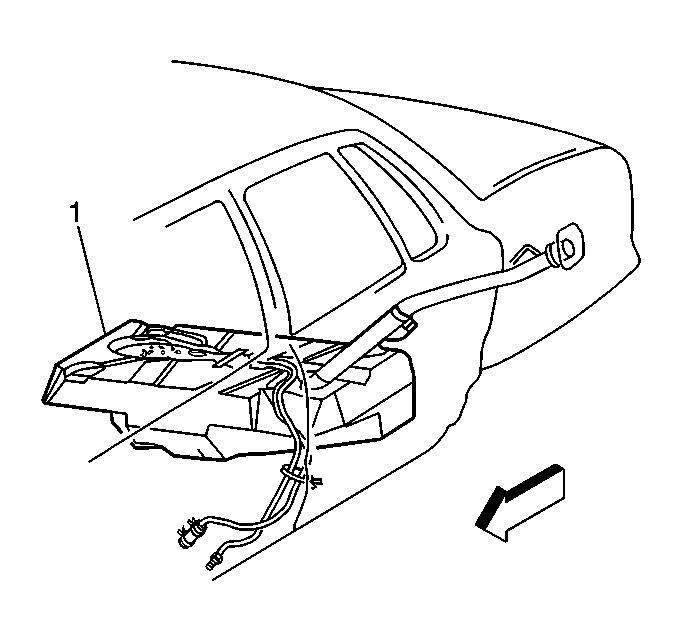
Important: The modular fuel sender support assembly will spring-up when the locking ring is moved.
Disassemble Procedure
- Note the position of the fuel pump strainer for installation.
- Support the reservoir with one hand and grasp the fuel pump strainer with the other hand.
- Pull the external fuel pump strainer off of the fuel pump.
- Inspect the fuel pump strainer. If the fuel pump strainer is contaminated, the fuel tank should be cleaned.
- Discard the fuel pump strainer (1) after inspection.
- Disassemble the electrical connectors from the sensor assembly of the fuel pump and the cover assembly.
- Disassemble the fuel level sensor assembly.
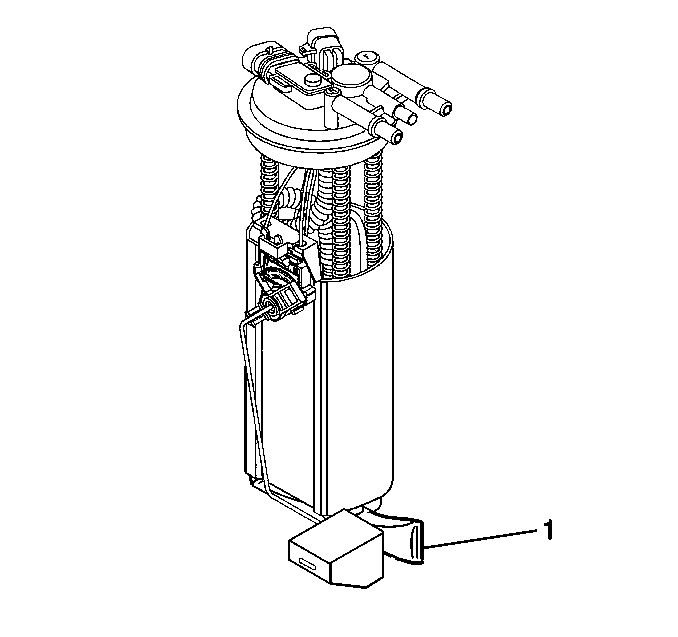
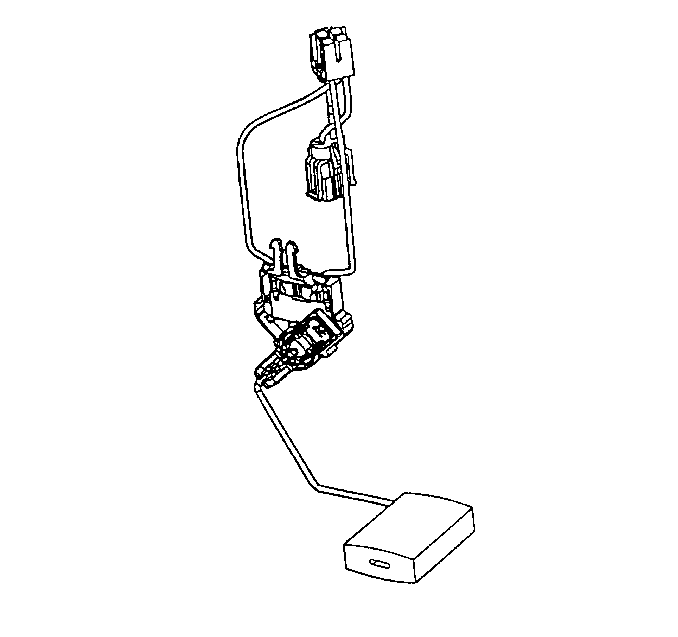
Assemble Procedure
- Assemble the fuel level sensor assembly.
- Assemble the electrical connectors to the fuel pump and the cover assembly.
- Position the new fuel pump strainer (1) on the modular fuel sender and push on the outer edge of the fuel pump strainer until the fuel pump strainer is fully seated.

Installation Procedure
- Install the fuel sender assembly. Refer to Fuel Sender Assembly Replacement .
- Add fuel and install the fuel tank filler pipe cap.
- Install the negative battery cable. Refer to Battery Negative Cable Disconnection and Connection in Engine Electrical.
- Inspect for leaks.
- Install the fuel sender access panel.
- Install the rear compartment trim panel. Refer to Rear Compartment Trim Panel Replacement .
- Install the spare tire, the jack, and the spare tire cover.
- Install the fuel injector sight shield. Refer to Fuel Injector Sight Shield Replacement in Engine Mechanical.
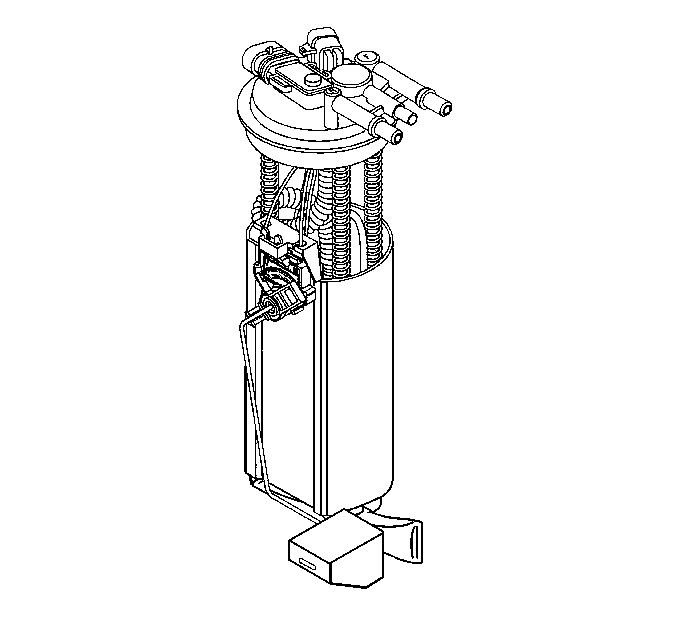
| 4.1. | Turn ON the ignition for 2 seconds. |
| 4.2. | Turn OFF the ignition for 10 seconds. |
| 4.3. | Turn ON the ignition. |
| 4.4. | Visually inspect the fuel system for fuel leaks. |
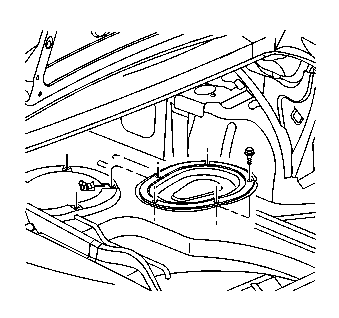
Notice: Use the correct fastener in the correct location. Replacement fasteners must be the correct part number for that application. Fasteners requiring replacement or fasteners requiring the use of thread locking compound or sealant are identified in the service procedure. Do not use paints, lubricants, or corrosion inhibitors on fasteners or fastener joint surfaces unless specified. These coatings affect fastener torque and joint clamping force and may damage the fastener. Use the correct tightening sequence and specifications when installing fasteners in order to avoid damage to parts and systems.
Tighten
Tighten the bolts to 2 N·m (18 lb in).
